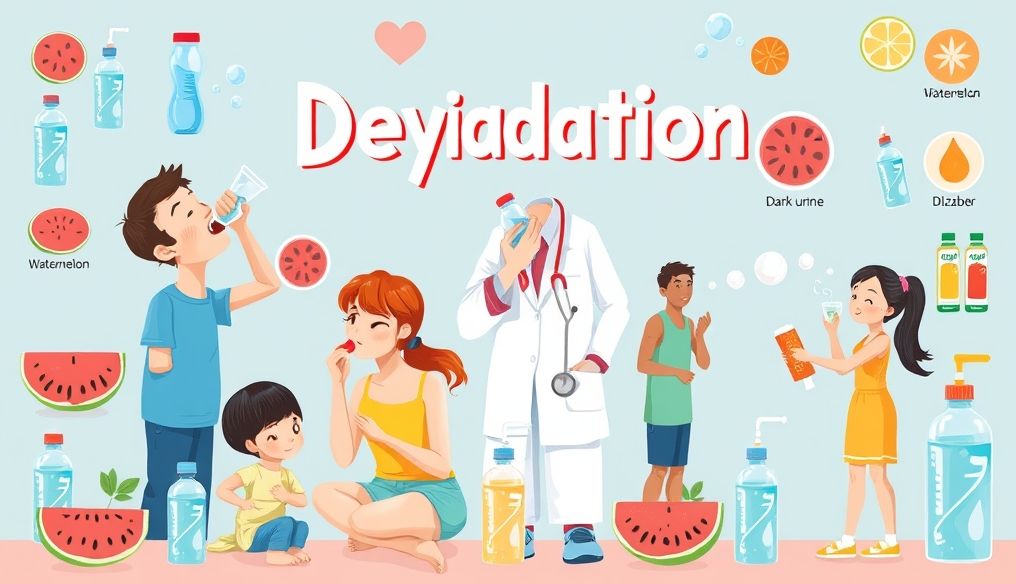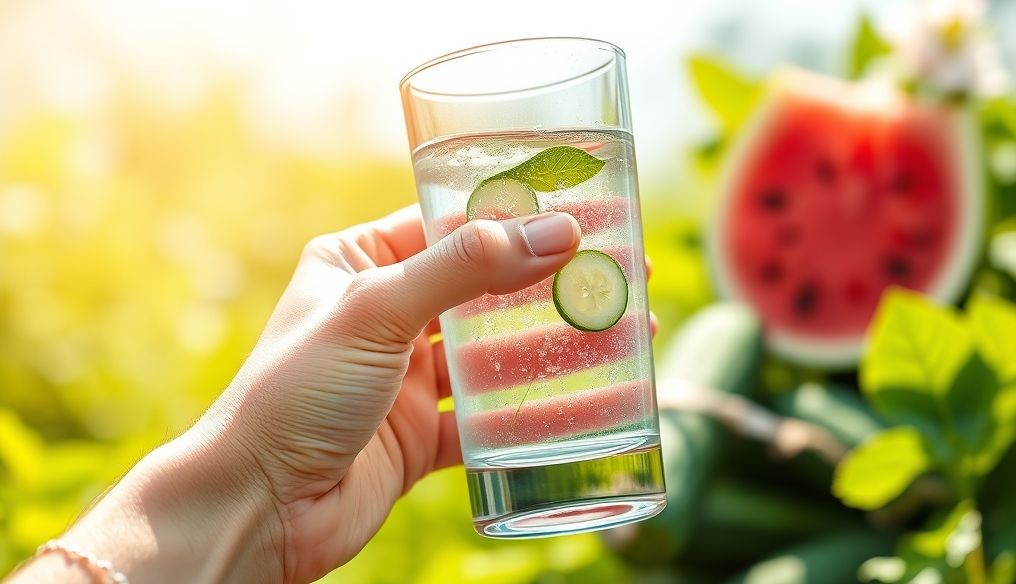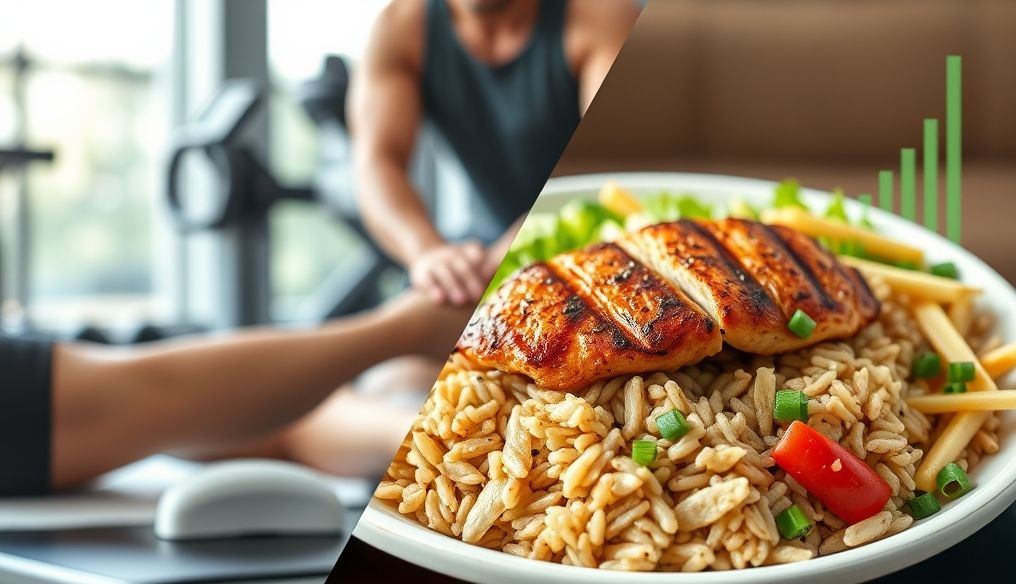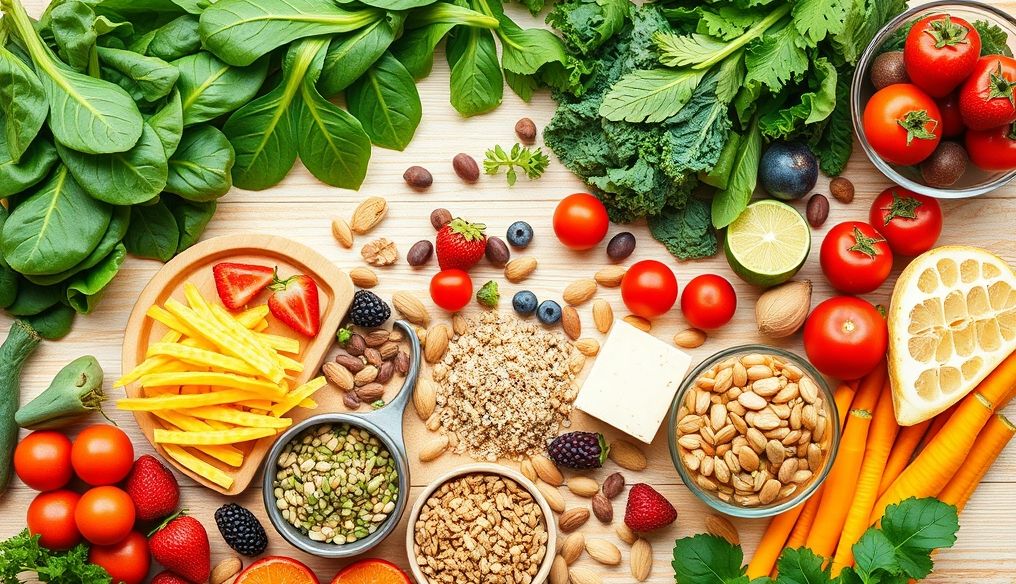What is Dehydration and What Causes It?
Dehydration is a condition that occurs when your body loses more fluids than it consumes, disrupting its normal functions. Dehydration can occur for various reasons, including:
- Not drinking enough water: This is the most common cause of dehydration.
- Strenuous exercise: Excessive sweating during exercise can lead to significant fluid loss.
- Diarrhea and vomiting: These can lead to rapid loss of fluids and electrolytes.
- Fever: Fever increases the rate of fluid loss from the body.
- Certain medications: Some medications, such as diuretics, can increase the risk of dehydration.
- Medical conditions: Certain medical conditions, such as diabetes, can increase the risk of dehydration.
What are the Signs and Symptoms of Dehydration?
The signs and symptoms of dehydration vary depending on its severity. Early signs of dehydration include:
- Extreme thirst
- Dry mouth
- Infrequent urination
- Dark-colored urine
- Dizziness or lightheadedness
- Headache
If dehydration is not treated, the symptoms can progress to:
- Rare or no urination
- Dry and wrinkled skin
- Rapid heartbeat
- Rapid breathing
- Fever
- Low blood pressure
- Irritability
- Mental confusion
- Loss of consciousness
How is Dehydration Diagnosed?
Dehydration is usually diagnosed through a physical examination and assessment of symptoms. The doctor may also order blood and urine tests to check electrolyte levels and kidney function.
How is Dehydration Treated?
Treatment for dehydration depends on its severity. In mild cases of dehydration, drinking plenty of fluids may be sufficient. However, in severe cases of dehydration, it may be necessary to administer fluids intravenously.
Recommended fluids for treating dehydration:
- Water
- Sports drinks containing electrolytes
- Chicken or vegetable broth
- Oral rehydration solution (ORS)
How Can Dehydration be Prevented?
Preventing dehydration is crucial for maintaining good health. Here are some tips for preventing dehydration:
- Drink plenty of fluids throughout the day: You should drink at least 8 cups of water a day, and more if you exercise or live in a hot climate.
- Eat foods rich in water: Fruits and vegetables like watermelon and cucumber are high in water content.
- Avoid drinks that increase dehydration: such as drinks containing caffeine and alcohol.
- Be careful while exercising: Drink plenty of fluids before, during, and after exercise.
- Pay attention to the symptoms of dehydration: If you start to feel thirsty or dizzy, drink water immediately.
- For children and the elderly: Be more careful to ensure they get enough fluids, as they are more prone to dehydration.
Dehydration and Nutrition: What Foods Help with Hydration?
In addition to drinking water, some foods can help keep the body hydrated. These foods include:
- Watermelon: Contains a very high percentage of water (about 92%).
- Cucumber: Contains a high percentage of water and is rich in electrolytes.
- Strawberries: A good source of water and antioxidants.
- Spinach: Contains a high percentage of water, vitamins, and minerals.
- Celery: Contains a high percentage of water and fiber.
Dehydration and Sports: How to Stay Hydrated During Exercise?
Losing fluids during exercise is normal, but it is important to replenish these fluids to prevent dehydration. Here are some tips:
- Drink water before, during, and after exercise.
- Choose sports drinks that contain electrolytes if you exercise for a long time or at a high intensity.
- Avoid sugary drinks, as they can increase dehydration.
- Listen to your body and stop exercising if you feel dizzy or extremely tired.
Dehydration and Children: Signs to Watch Out For and How to Deal with Them
Children are more prone to dehydration than adults, so it is important to pay attention to the signs and symptoms. Possible signs of dehydration in children include:
- Dry diapers for a long time
- No tears when crying
- Dry mouth and tongue
- Lethargy or irritability
- Sunken eyes or fontanelle (the soft spot on an infant's head)
If you suspect your child is dehydrated, consult a doctor immediately. Oral rehydration solutions (ORS) can help replace lost fluids.
Dehydration and the Elderly: Special Precautions and Tips
Older adults are also more prone to dehydration due to factors such as decreased thirst sensation and the medications they take. It is important to ensure that older adults get enough fluids. Tips include:
- Offering water regularly throughout the day.
- Providing foods rich in water.
- Monitoring for signs of dehydration.
- Consulting a doctor about medications that may increase the risk of dehydration.
Disclaimer: This information is provided for educational purposes only and should not be considered a substitute for professional medical advice. Always consult your doctor for diagnosis and treatment.




